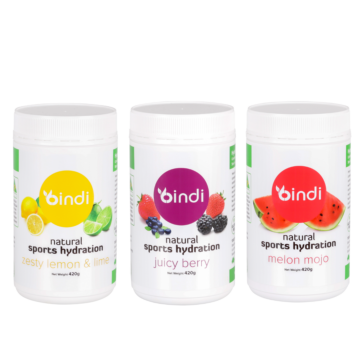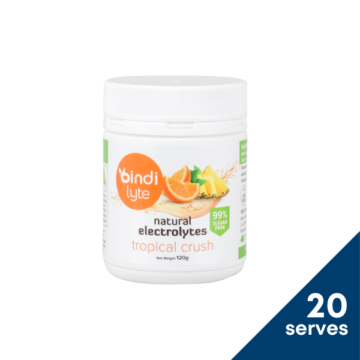It is important to know the signs of dehydration in kids and to respond quickly when your child has these symptoms. In this article we will explain the signs of dehydration you need to be aware of, plus one simple trick to check for dehydration yourself. We will also look at the best ways to rehydrate children and teens, depending on the severity and cause of dehydration.
Even mild dehydration of 1-2% fluid loss can begin to affect your child’s physical and mental performance
What is Dehydration?
We all lose fluid every day through our sweat, tears, urine and faeces. We can replace this easily through drinking fluids and in our food. However, sometimes fluid losses are increased such as during heavy exercise and heat stress, or during illness such as a fever, vomiting, diarrhoea and burns.
Dehydration occurs when fluid losses are greater than the amount that is being replaced.
What are the Signs of Dehydration in Kids?
Young children and babies are at greater risk of becoming dehydrated than adults. It is important that children are always hydrated, but particular attention should be paid to their hydration when they are unwell.
Signs of mild dehydration:
- Feeling thirsty
- Feeling dizzy or light-headed
- Feeling tired
- Dark yellow or brown urine
- Less toileting compared to normal
- Dry mouth, lips, eyes or throat
signs of severe dehydration:
(can be seen in over-exertion, heat stress or illness)
- Pale skin, sunken eyes
- Feeling cold especially hands & feet
- Extremely thirsty
- Lethargic, irritable
- Drowsy, confusion
If your child is thirsty, they are probably already dehydrated.
How to test for Signs of Dehydration in Kids
It is important to keep an eye out for all these signs of dehydration listed above. However, there is one simple test you can perform to check for yourself.
Try pinching a small section of skin on the back of their hand for a couple of seconds. Normal, hydrated skin is quite elastic and will pop back into place quickly. If the skin takes longer and sits in the pinched position (called ‘tenting’) then the child is likely to be dehydrated and should be treated immediately.

How to Treat Dehydration in Kids
If your child is showing signs of severe dehydration, you should seek medical attention. Mild dehydration on the other hand can often be managed at home. It is always vital to address any underlying medical condition.
The goal is treating dehydration is to replace fluids and restore body fluid levels back to normal. Children who are mildly dehydrated from excessive activity will probably already be thirsty and drinking plenty of water may be enough to replenish their fluid. Find a cool, shady spot until they improve.
Adding an oral rehydration solution containing electrolytes can help replenish the salts and fluid they have been sweating out. Using a low-sugar product like Bindilyte Hydration Mix will provide the electrolytes kids need to help absorb, retain and redistribute the fluid as they rehydrate. This allows them to rehydrate more quickly without the risk of diluting electrolytes in their body further.
A sports drink containing electrolytes plus carbohydrates can replenish fluids and energy as well. This can be helpful for older kids that are mildly dehydrated due to exercise. Use a natural product such as Bindi Natural Sports Hydration which is not high in sugar like many sports drinks.
For kids over ten years of age that are mildly dehydrated, aim to give 250ml water or hydration mix per hour for 4 hours.

How to Prevent Dehydration in Kids
The body needs water to for vital day-to-day functions such as maintaining body temperature and making bodily fluids. Plan ahead for sports days to ensure they have plenty of fluids available.
For young children (under ten) they should drink plenty of water to keep hydrated.
For kids over ten who are more active (think intense exercise for more than an hour) they can use a combination of water and a healthy sports drink such as Bindi Natural Sports Hydration to keep hydrated.
Be sure to avoid high sugar sports drinks that are filled with artificial colours and flavours, as high sugar intake does not maximise hydration.

Know when to seek Medical Attention
Babies and younger children are at higher risk of becoming dehydrated and they can deteriorate quickly.
If your child is under 6 months of age or is unwell and is showing signs of dehydration you should seek medical attention.
key points to remember
- If your child is thirsty, they are probably already dehydrated
- Younger children and babies are at higher risk of dehydration
- Severe dehydration required medical attention
- Mild dehydration can be managed with water or oral hydration mixes.
Many times, dehydration can be prevented ~ plan ahead for older kids who are very active, using these natural products below:
Rehydration products


